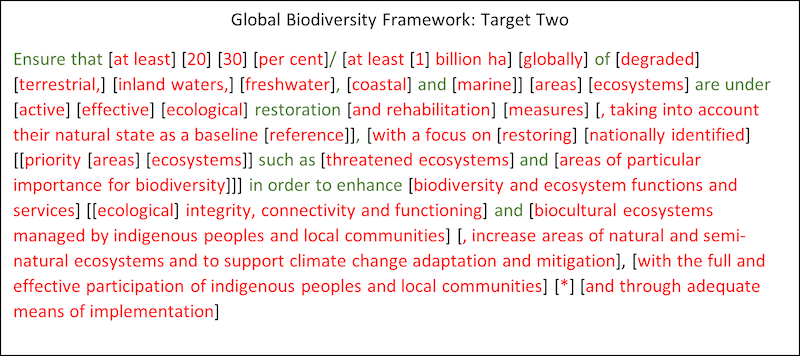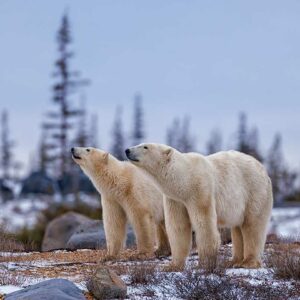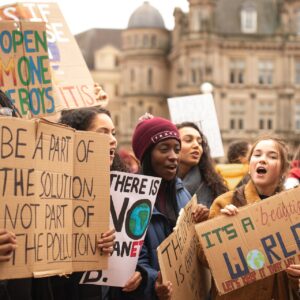Nature’s Future in Brackets: NatureCOP Needs High-Level Engagement
Biodiversity – the amount and variety of life on Earth – is declining rapidly across the globe. Today, there are over 1 million species at risk of extinction.
Despite this crisis, there is no global strategy in place to protect our natural habitats. The last plan, the so-called Aichi Targets, achieved little and expired in 2020. The Aichi Targets were supposed to be immediately followed by the post-2020 Global Biodiversity Framework (GBF), which would provide a plan to halt and reverse biodiversity loss by 2030. But unfortunately, the COVID-19 pandemic and international politics delayed the GBF by almost three years.
Now, the GBF is expected to be signed off at the 15th Conference of Parties to the Convention on Biological Diversity (the Nature COP) this December in Montreal. But, political disagreement on what the GBF should say and limited international leadership has put the transformative GBF needed to stop nature’s decline at risk.
With just 1 month left to go, almost none of the draft GBF has been agreed upon. Under the rules of the Nature COP, the text can only be approved if everyone agrees. Currently, only 1 out of the GBF’s 22 biodiversity targets has reached this threshold. Most of the rest of the text is ‘bracketed’ – a term for disputed content that comes from the diplomatic practice of showing text that is not settled in square brackets.
The current state of Target 2 of the GBF, copied below, provides a sense of how little is confirmed. Remember, only the green text that is not in square brackets is settled.

These brackets come from the many disagreements between countries on what the GBF should – or should not – require. While some disagreements are trivial, others are fundamental. Like whether to protect 30% of land and ocean by 2030, whether and how to stop over $500 billion in subsidies that harm biodiversity, and where and how to include the rights of Indigenous peoples.
Even so, all these disagreements are overshadowed by the negotiation’s make-or-break issue: payments from developed countries to developing nations. The argument goes like this: developing countries require funding to help them meet strong biodiversity targets that they cannot otherwise afford to meet. They point out that developed countries have grown rich by exploiting nature and that it is demand in rich countries that drives global biodiversity loss. But developed countries, simply put, do not want to spend the money.
These disagreements are difficult to solve because of a lack of high-level attention to the GBF. The COVID-19 pandemic led to the Nature COP being postponed, then rescheduled, and finally relocated from China to Montreal. And while Canada is the meeting venue and a champion of the GBF, China retains the presidency of the Nature COP and controls the event. Given current tensions between Canada and China, China has little reason to promote a gathering of world leaders in Canada. With the Nature COP just weeks away, China has still not invited world leaders to participate.
The result of these delays and tensions is a lack of high-level political engagement. An open letter from conservation organizations pointed out the absence of strong political leadership supporting the GBF. In this context, the co-chairs of the GBF negotiations themselves said that, without change, the GBF would not be signed in December.
To overcome these difficulties, nature needs to be moved up the political agenda. Much of life on Earth depends on it. Global leaders must come to Montreal. Either China should invite them, or they should invite themselves, perhaps with Canadian encouragement. If leaders do not show up the opportunity for a strong GBF may slip through our fingers. If that happens, both nature and people will lose out. But, regardless of what happens at the Nature COP, Canada needs to act. Biodiversity experts from across Canada, and over 200 organizations, have urged the government to implement a comprehensive national action plan to halt and reverse biodiversity loss by 2030. This must be done regardless of what happens at the Nature COP. Canada’s size and rich biodiversity mean that how we protect our nature has global impacts. We must act for the globe, our country, and future generations of Canadians – even if we have to do it alone.
Please, send your letter to Prime Minister Trudeau and his ministers, today.



